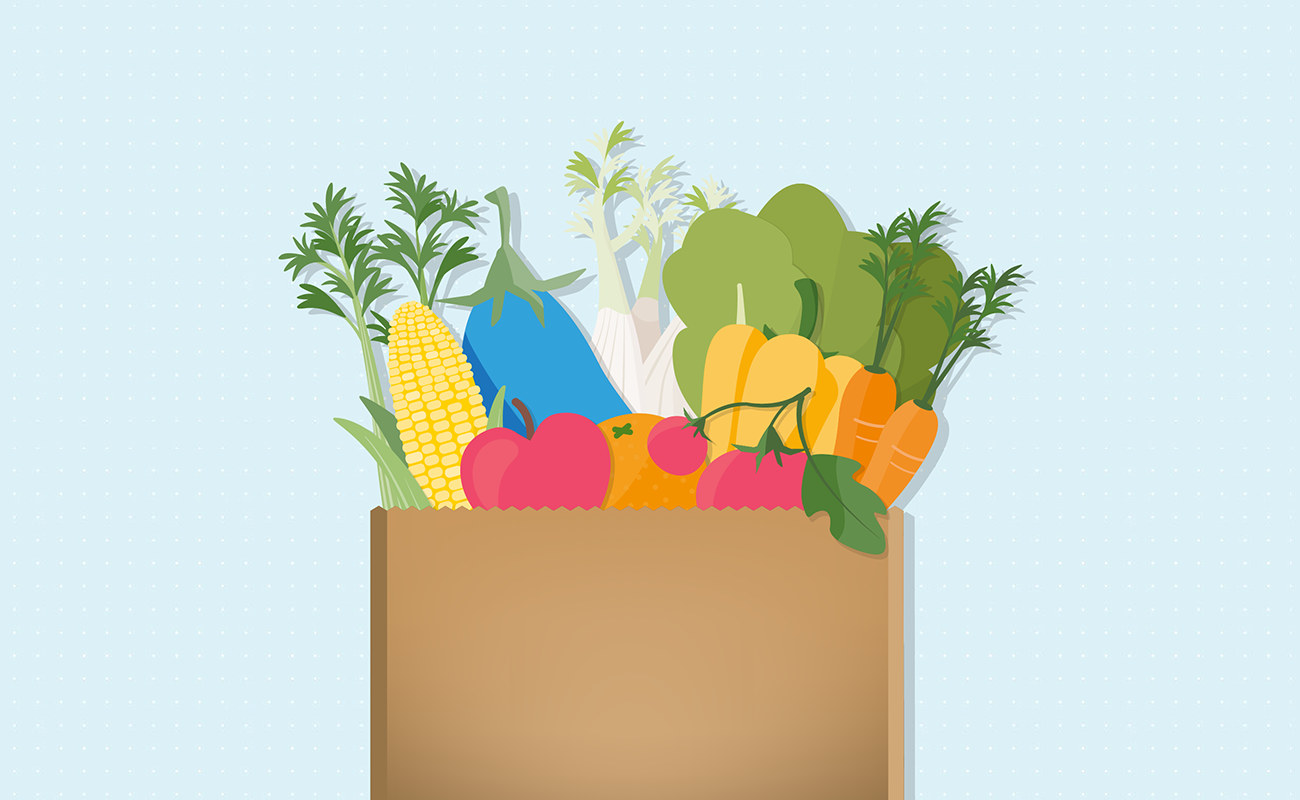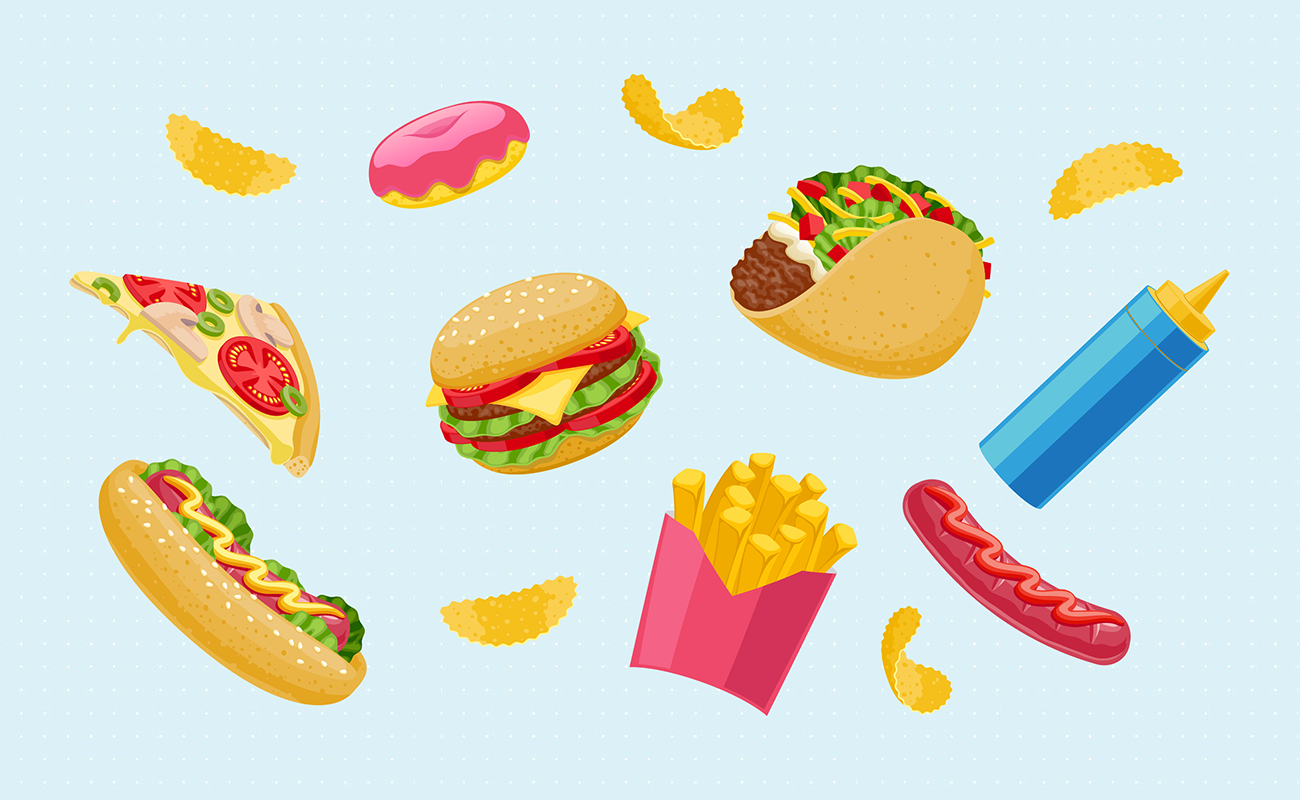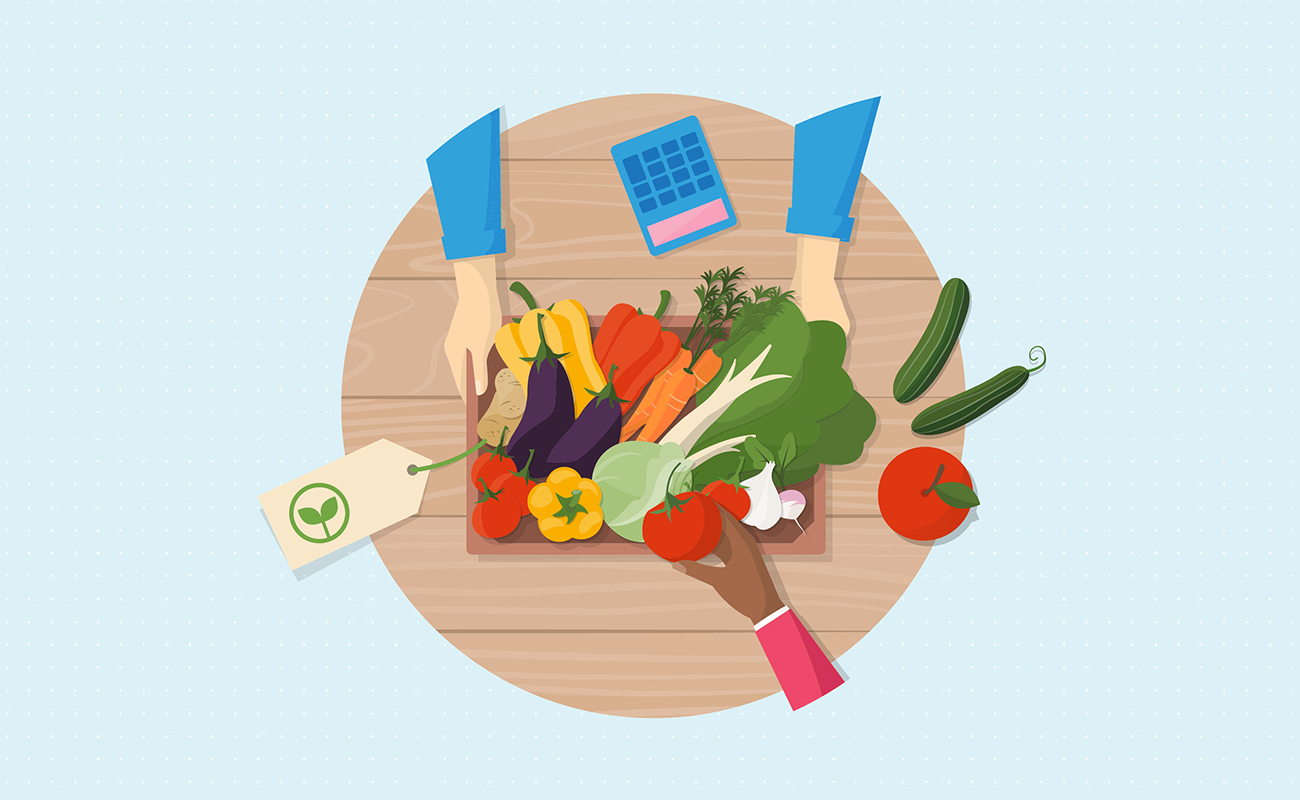 Brown Bag Savings Calculator
Brown Bag Savings CalculatorBuying food at or near work is often both expensive & unhealthy. This calculator helps people estimate how much they could save by bringing their own lunch to work instead of eating out.
Guide published by Jose Abuyuan on January 24, 2020

Even in developed nations like the United States, eating a healthy diet can be a challenge. People below the poverty line still struggle with the omnipresent threat of hunger. Even being able to afford food is no guarantee of eating well. Many lower-income families live in so-called food deserts. In these areas, food itself isn’t in short supply. The quality of the food, however, is often abysmal. In these places, the food is either fast food or processed food. Neither option is healthy in the long run.
The ubiquity of processed food plays a key role the country’s obesity epidemic. Doctors believe that the prevalence of certain diseases is tied to this diet. Diabetes and heart disease are the steep price of eating cheap food. In addition, tight budgets and schedules make these a tempting option for busy families.

The NOVA classification, recognized by the World Health Organization, gives a clear definition of what processed food is. The term is used for food treated with salt, sugar, and other additives. It also defines what we know as “processed food” and ultra-processed food. This includes foods made with several additives such as preservatives and food coloring. Both processed and ultra-processed foods are often ready to eat off the package.
It is no secret that a diet containing processed food is not good for you. Many processed foods and fast food items are rich in sugars, salts, and oils. They also lose many vital micronutrients while being manufactured. Eating ultra-processed food regularly does not yield a balanced, healthy diet. You risk consuming too much sugar and salt every time you have a second bag of chips.
Eaten in moderation, processed food is not harmful to the body. However, the way people respond to them means that moderate consumption rarely happens. Studies show that processed foods suppress feelings of fullness. This spurs people to eat more of the same.
To make things worse, these foods are often the cheapest things people store up. Students and low-income families alike subsist on instant ramen because of this. Breaking bad eating habits can be a difficult undertaking.

Eating out is another wasteful habit done by many American consumers. Restaurants provide a convenient place to get a delicious meal. In food deserts, the main (and only affordable) eatery might be a fast food chain. Other times, you might have the luxury of choice. The restaurants in your area may offer a few healthy choices.
There are times when eating out might seem more economical. These usually involve the astronomic costs of certain ingredients like meat and seafood. Restaurants are better able to buy in bulk. Thus, their prices might seem cheaper than their home-cooked counterparts. However, the ingredients people buy can often be used for multiple meals. This alone tips the scales in favor of cooking at home.

People eat out because they believe it saves them time. This could be used for leisure or revenue-generating activities such as side jobs. Thus, eating out is less of a luxury and more of a necessary concession. But does time equal money in this instance?
The price of going out to a restaurant adds up enormously over time. Compared to a home-cooked meal, a restaurant meal can be five times as expensive. The markups are even higher when it comes to entrees like pasta and meat dishes.
One of the most common pieces of financial advice extols the benefits of cooking your own food. Buying ingredients might be an expensive proposition at first. The rising prices of groceries—especially fresh food— do not help. Overall, cooking at home for your family is still the most affordable way to eat. For less than $4 a person, you can have a sumptuous, healthy meal.
If your parents or grandparents were kitchen wizards, you probably know how good home cooking could be. When done by a skilled cook, home-cooked meals can surpass the quality of the food you eat at a restaurant.
You also have the advantage of knowing exactly what went into your food. You needn’t worry about food allergens, for instance. Home-cooked meals are an excellent option for people who follow rigid diets for religious or fitness reasons. It is less stressful than looking for a good restaurant that offers exactly what you’re looking for.
Besides being cheaper, home cooking can also be more nutritious. You can substitute some ingredients with healthier alternatives. Portion control is also much easier at home. There’s no risk of you overeating if you cooked just enough food.
Finally, cooking is an exciting and engaging hobby. Popular food vloggers can attest how fun it is to make meals from scratch. There’s a sense of accomplishment when you dig into a delicious meal you made yourself.
However, not everyone has the skill or the time to do a Gordon Ramsay in their own kitchen. Sometimes, the risk of kitchen disasters outweighs the savings you make from cooking at home. Then, there are times where eating out is preferable simply because you don’t know how to cook at all.
Cooking your own food is a time-consuming endeavor. You may not always have enough time in your schedule to dedicate to cooking. In a tough day, you might be too exhausted to eat anything but takeout.
Physical limitations can also take its toll on your ability to cook healthy. If you’re just starting out, your apartment or dormitory room may not even have much of a kitchen to speak of. In food deserts, finding healthy ingredients can be both time-consuming and expensive.
An alternative to eating out is to seek a meal kit service. These companies send pre-proportioned ingredients and simple instructions. Meal kits let you cook from home with relative efficiency. They are cheaper than restaurant food and easier to prepare.
The markup in these services can still be hefty. They could cost up to three times the amount of buying the ingredients yourself. This isn’t a justifiable expense for some of the cheaper recipes. However, these services sometimes make up for it through complex dishes. A pre-made recipe can make learning a difficult recipe simple.
Kitchen efficiency is a common theme in most cooking and foodie blogs, and with good reason. Time is the biggest challenge for any budding home chef. To maximize your time in the kitchen, you should shop and cook smarter.
To start off, you would need to hone your cooking skills. If you have never cooked before, take the time to learn the basics. Choose the learning method that works for you. If you learn better in a classroom environment, you could try to book a cooking class over the weekend. Meanwhile, social media junkies among us can learn from talented chefs on YouTube.
One of the biggest steps toward saving money is through smart shopping. Consider getting much cheaper generic brands for common staple products. Frequently, they are made in the same places as the national brands, costing 30 percent less. The savings you make from buying generic canned vegetables and dry goods can add up at the checkout lane.
Choose quality that lasts. Stock up on dry goods that do not spoil readily. Meanwhile, buy vegetables and meat as needed. When fresh vegetables aren’t an option, frozen vegetables are a good standby. If you can spare the time, buy foods whole rather than pre-prepared. The money you save more than justifies the effort.

Time your purchases carefully. You can save even more from bulk purchases if you buy them during a sale. Moreover, consider planning your meals around sales. This way, you can save money while knowing exactly what you’ll need to cook.
Finally, dedicate less of your budget toward ultra-processed food. Avoid the cola, chips, and snack cakes. Your wallet and waistline will thank you for it.
Every chef knows that it is possible to make a scrumptious meal with inexpensive ingredients. If you know what you’re doing, you don’t always need pricey stuff to eat gourmet. Don’t be afraid to invest in new tools. A better knife or food processor can make quick work of routine kitchen tasks.
Employing the right techniques can help you make the most of cheaper ingredients. Investing in a slow cooker, for instance, doesn’t just save you time. This approach to cooking can help you bring out the flavor from cheaper cuts of meat. You can also prepare a lot of meals with a slow cooker, making it a versatile tool for preparing meals at home.
A well-planned meal guide can help you save on groceries. This way, you buy only the ingredients you need. Besides saving you money, it can also help you avoid food waste. Buying only the perishables you need prevents them from spoiling in your fridge.

Create a recipe book. Be sure to include recipes for salads and other meals that require little cooking. The idea is to have a library of healthy, easy-to-prepare meals. You might also save a lot of time if you cook meals in bulk.
Choosing recipes that are easy to cook also helps you save money on ingredients. You can produce a lot of variety from the same family of ingredients. Save the cool yet difficult recipes when you have the time for them.
Some restaurants are generous with their portions. See to it that nothing you prepare goes to waste. You might find that a big restaurant meal can become two meals if you bring home the leftovers. It’s better than throwing it all away.

The biggest challenge for any low-budget gourmand is the food desert. When moving isn’t an option, you need to find ways to access healthy food in an arid junk food area. If you know where to look, you can find affordable places to buy good-quality produce.
A car can make a difference in the amount of food you can buy at once. If you don’t own one, consider carpooling with friends and do your grocery shopping together.
Many urban areas host a farmer’s market at least every weekend. Here, you can have a good selection of fresh produce at affordable prices. Find out when you have one in your neighborhood and pay them a visit.
Not everyone has the time or interest to grow their own ingredients at home. If you are among those who do, this can be a very rewarding experience. Growing your own food can be done in your backyard, in containers, or at a dedicated community garden. Urban agriculture is rife with benefits for yourself and the environment.

When gardening your own food, choose a favorite crop that’s also easy to grow in your region. With enough care, you can soon find yourself with a bountiful harvest.
When gardening your own food, choose a favorite crop that’s also easy to grow in your region. With enough care, you can soon find yourself with a bountiful harvest.
Growing a bumper crop also means you end up with more produce than you expected. Consider learning food preservation to make use of your harvest all year-round. You may even sell your excess food at the farmer’s market for extra cash. Do take it easy on the salt, though.
Eating at home is not only the cheaper option. You also have better control of your food’s quality. Healthy choices become much easier to follow when it becomes a habit. It’s hard work, but well worth the extra effort.
Bringing efficiency to your kitchen can ease the challenges of home cooking. This is the first step toward moderating your unhealthy food consumption. Visit this page for more tips on slashing your grocery bills.
Jose Abuyuan is a web content writer, fictionist, and digital artist hailing from Las Piñas City. He is a graduate of Communication and Media Studies at San Beda College Alabang, who took his internship in the weekly news magazine the Philippines Graphic. He has authored works professionally for over a decade.